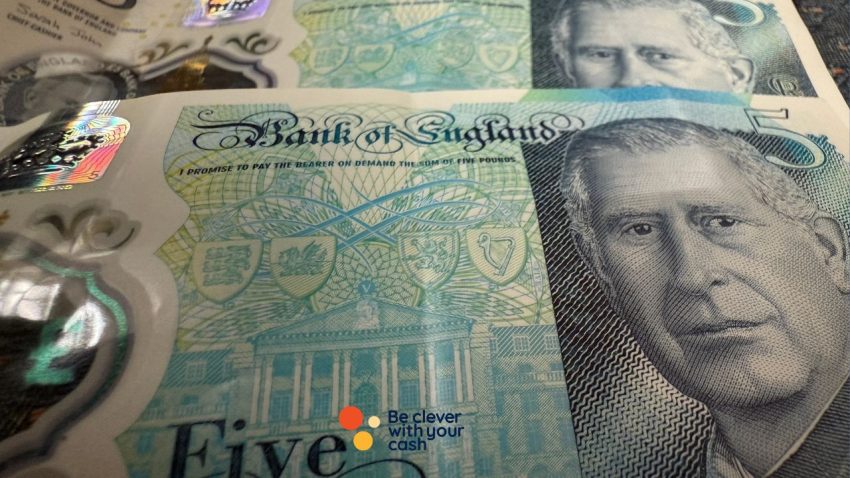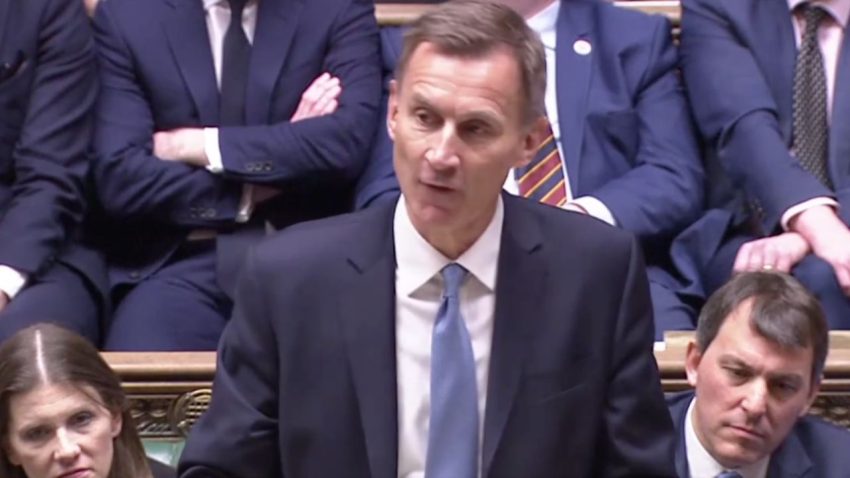The new Government has revealed what it plans to do to combat inflation.
*UPDATE 17/10/22: Wow, so much has happened since this mini Budget happened at the end of September. Today new Chancellor Jeremy Hunt announced some major u-turns. Now, the vast majority of the measures below won’t be happening, plus there’s a big change to the energy price cap freeze.
The Chancellor also warned of further tax increases and reduced spending on the horizon. Not good news for any of us.
I’ve added quick updates in italics to each point below so you know what to expect. There’s also an updated video with more information just a little further down the page.
—
On Friday 23 September we finally got to hear from newly appointed Chancellor Kwasi Kwarteng what the Truss Government plans to do to fight rising costs and recession.
We’ve been waiting a while. First the Conservative Party leadership contest delayed anything of substance from Downing Street, and then the Queen’s death and funeral pushing back an anticipated emergency Budget.
But now, just before Parliament breaks (again) for conference season, we’ve got a look at what the new look cabinet plans for our finances (Spoiler: Good news for high earners, not much for everyone else). In this article I’ve taken a look at what was announced, and what it means for your finances.
What was the “mini-Budget”?
There’s usually only one Budget each year, when the Chancellor lays out the Government’s latest economic plans. It’s been a bit different since 2020 as first the pandemic and then the cost of living crisis have meant extra announcements have been made adhoc through the year.
That means this wasn’t official a budget. Instead it’s been referred to as a “mini-Budget” – though there were some pretty huge (and expensive) policies in it.
The focus was all about growth. Big changes to tax policy which the government believe will mean the wealthiest have more cash that will “trickle down” to everyone else through investment and spending.
This isn’t a school of thought popular with everyone (including American President Joe Biden) and the pound fell dramatically against the dollar to a value of $1.09 after the new policies were announced.
I am sick and tired of trickle-down economics. It has never worked.
— President Biden (@POTUS) September 20, 2022
We’re building an economy from the bottom up and middle out.
Controversially, the Chancellor also didn’t allow the wider economic forecasts by the Office of Budget Responsibility to be published, nor were many of the measures costed out to show the real cost of the announced measures.
So this isn’t a “Budget” to help us right now. It won’t make a difference to increased everyday costs you’re facing, including the energy bill increase next month which is still double last year’s prices depsite the cap.
Cost of living & energy bill crisis support
*17/10/22 UPDATE: The Energy Price Guarantee Scheme will end after six months rather than two years. It’s likely we’ll return to a price cap reviews every three months (so expect higher bills). New targeted support measures will be announced rather than universal cuts.
There’s no additional direct support for rising prices in this announcement, meaning the already announced Energy Price Guarantee Scheme is all we’re going to get to help with rising costs, along with the £400 bill discount policy from the previous government’s Energy Support Scheme.
There was a little more detail about how the cap will be funded – the UK will borrow to cover the huge costs. There will be no additional windfall taxes on the profits of the energy firms as the government claim it’ll disincentivise investment.
Ultimately, this likely means we’ll all pay for this as taxpayers or funding for other services will be cut.
National Insurance changes
*17/10/22 UPDATE: These changes are still happening next month.
Remember back in March when a big change to National Insurance was announced? The additional 1.25% only started deductions in April, but they’ll be scrapped from 6 November (though some employers might back date payments if they can’t adjust systems in time).
What hasn’t changed is the increased threshold before NI is due. So it’s not quite back to where we were six months ago.
Even so, the people who will benefit most from this cut are higher earners.
| Salary | £20,000 | £30,000 | 40,000 | 50,000 | 60,000 | 70,000 | 80,000 | 90,000 | 100,000 |
| Current NI | £984 | £2,309 | £3,634 | £4,959 | £5,311 | £5,636 | £5,961 | £6,286 | £6,611 |
| After NI reduction | £892 | £2,092 | £3,292 | £4,492 | £4,719 | £4,919 | £5,119 | £5,319 | £5,519 |
| Tax saving | £93 | £218 | £343 | £468 | £593 | £718 | £843 | £968 | £1,093 |
Income Tax changes
Basic Rate Income Tax cut
*17/10/22 UPDATE: This cut will not happen in 2023, or 2024 and will remain at 20% indefinitley.
There were two big changes here. The first one will impact most earners. The income tax rate that is paid on earnings between £12,571 and £50,270 will be cut from 20% to 19% from April 2023. That’s a year earlier than initially planned. This does mean you’ll keep more of your earnings, though it’s not a huge amount for most people.
The 1% will average out as an extra £170 less tax paid in the next financial year, though higher earners will benefit most. Savings for basic rate taxpayers will average £130 while higher rate taxpayers will average £360.
It’s worth noting that the income tax changes are for England, Wales and Northern Ireland as Scotland has different tax bands.
One knock-on of this cut is that you’ll also get 1% less tax relief on pension contributions as that’ll also be at 19% rather than 20%. So that’s less free money going into your pension.
Our podcast
Listen to Cash Chats, our award-winning podcast, presented by Editor-at-Large Andy Webb and Deputy Editor Amelia Murray.
Episodes every Thursday.

Additional Rate Income Tax abolished
*3/10/22 UPDATE – Due to the controversy around this move (and the consequences on markets and the pound), the government has u-turned on this and it now won’t be scrapped*
The “Rabbit out of the hat” (i.e. the policy that hadn’t already been leaked) was that the 45% rate of tax due on earnings over £150,000 is abolished completely from April next year. So all earnings above £50,270 will be taxed at 40%.
This means the richest will pay less tax. It’s estimated that’ll average out at £10,000 less tax each year for the 660,000 people who pay it, but obviously could be much more for the highest earners.
They’ll also now be eligible for the Personal Savings Allowance, meaning they can earn £500 in interest before tax is due.
Dividend Tax hike cancelled
*17/10/22 UPDATE: The increase will now go ahead in April
For those who earn dividends, the tax on these was due to increase from 7.5% to 8.75% next April. These will now stay at 7.5% (for basic rate tax payers, it’s higher for other bands). Don’t forget there’s also a £2,000 annual tax-free allowance before this tax is due.
Corporation Tax increase & bankers bonus cap scrapped
*17/10/22 UPDATE: The government already announced a u-turn on the Corporation Tax increase, which will begin to increase next April. However the bankers bonus cap will still be scrapped.
Also not happening is an increase on Corporation Tax from 19% to 25% that was scheduled for next April. Plus the cap on bonuses that could be paid to bankers will be scrapped.
 Featured switching deal
Featured switching deal
 Customer rating
3.8/5
Customer rating
3.8/5
- Switch bonus£200
- Offer endsUnknown
- Extra bonus£25 Amazon Gift Card
- FSCS Protected? Yes
- Switch bonus requirements Switch using the Current Account Switch Service and close your old account within 60 days of starting the switch
- Deposit requirements Deposit £1,500 in the first 60 days from opening the account
- Direct debits transferred over Set up two Direct Debits before or after the switch from a selected list of household bills
- Existing customers? Can't have held any Santander current account on 1 January 2025
- Restrictions Can't have received a switching bonus from Santander already, offer limited to once per person
- Eligible accounts Open a new or hold an existing Everyday, Edge, Edge Up or Edge Explorer current account
- £25 Amazon Gift Card requirements To qualify for the gift card, you need to complete a full switch using CASS, and make five debit card transactions within 30 days of opening the account
Get the best of our money saving content every week, straight to your inbox
Plus, new Quidco customers get a high paying £18 welcome offer

Stamp Duty
*17/10/22 UPDATE: This has not been reversed so the levels below are what you’ll pay
The thresholds for when and how much Stamp Duty you pay have changed with immediate effect for those in England and Northern Ireland. The table shows the new rates.
- No Stamp Duty will be paid on the first £250,000 (up from £125,000)
- First-time buyers will pay no Stamp Duty on the first £425,000 (up from £300,000) on properties valued up to £625,000 (up from £500,000)
Above these levels until £925,000 you’ll be charged 5% of the remaining property value. So if a house costs £300,00, a non first-time buyer would pay tax on £50,000. It then jumps to 10% of property value over £925,001 and 12% on places over £1.5million. There’s also a 3% surcharge on second homes.
Benefits
*17/10/22 UPDATE: No change announced here
As mentioned, there were no new support payments announced for those on the lowest incomes. However there was one change in the mini-Budget.
Some of those who work part-time and also receive benefits will be forced to find more paid hours or face sanctions to their benefits. Currently that rate is 9 hours a week at minimum wage. It’s now going up to 12 hours, and will be 15 hours from January.





